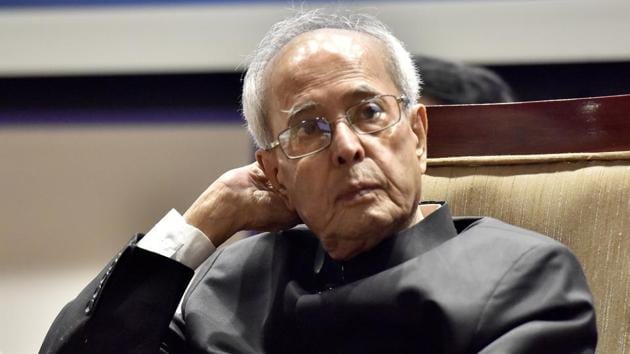The importance of political memoirs | HT Editorial
What India needs is more — not less — of candid autobiographies by those who helmed the nation; it also needs readers to be more open in treating this as a historical record rather than scoring political points over it.
The late former president, Pranab Mukherjee’s final book, in his series of memoirs, on his presidential years has run into controversy. In the backdrop of early excerpts put out by the publisher — where Mukherjee was critical of the political management under the United Progressive Alliance (UPA) after his elevation to Rashtrapati Bhawan — his son, Abhijit, has demanded that the book’s publication be stopped. In contrast, his daughter, Sharmishta, has backed the publication of the book and lent it greater credibility by saying that her father had completed the manuscript and the final draft had his approval.

The book, of course, must be published. But this debate goes beyond the feud within the Mukherjee family — and raises a larger question about the place of political memoirs in India. India has seen some great classics in this genre by its tallest leaders — Mahatma Gandhi’s My Experiments with Truth and Jawaharlal Nehru’s autobiography are at the top of the list. These memoirs give a glimpse of the early socialisation of those who ended up shaping the nation’s trajectory, their motivations, and offer to historians rich material to understand the how and why of historical events.
Yet, the tradition of political memoirs is marked by paucity. Many leaders don’t record their experiences or gloss over inconvenient facts. They don’t allow biographers access to their private papers or make access contingent on control. What India needs is more — not less — of candid autobiographies by those who helmed the nation; it also needs readers to be more open in treating this as a historical record rather than scoring political points over it.






